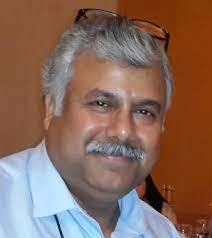Enrichment Lecture-Literary Theory as a Stance and a Mode of Interpretation by Prof. Roshan Lalby

Enrichment Lecture Report
A virtual Enrichment Lecture was organized by the Department of English on 22 September, 2020 on "Literary Theory as a Stance and a Mode of Interpretation". Prof. Roshan Lal Sharma, Head, Dept. of English, at the Central University of Himachal Pradesh, was invited to deliver the lecture, which saw a big turnout.
After a warm welcome accorded by Dr. Rimika Singhvi, Head, Dept. of English, Prof. Sharma introduced the participants to Literary Theory from the perspective of the teacher and the taught. Describing it as "a critique of common sense", he pitted it against 'criticism' and elaborated on how the application of theory helps in enhancing critical thinking and "radical" interpretation, by opening up diverse perspectives for analysis. He went on to discuss the role of texts and their textuality in comprehending theory. Using several examples, such as Feminist literary theory, Postcolonial theory and Post Modernism, he explored the essential parallel link between literary texts, theories and the theorists. He also recommended books such as Critical Theory Today by Lois Tyson and Beginning Theory by Peter Barry, and gave numerous beneficial suggestions to students on improving their literary knowledge and critical thinking. Prof. Sharma also highlighted the importance of slow reading and the danger of skimming through a book, while encouraging the readers to get over their fear of complex terminology. He further elaborated upon the socio-cultural and ideological aspects of literary theories, indicating that while different theories brought newer dimensions to literature, not one of them could be deemed perfect.
While talking about literary theory as a stance, Prof. Sharma emphasized on the position of the reader as an independently thinking individual and expressed his opinion with regard to subjectivity and the ‘birth’ of the reader. He stressed on the position of the reader as "I", with a unique understanding and encouraged everyone to think critically by asking, examining, interrogating, questioning and, contesting the canon. The Talk was followed by an interactive Q&A session. The queries and observations from students and faculty members brought into focus the changing cultural patterns as seen reflected in popular culture and literature, and the critical reception of newer literary theories. In sum, the lecture turned out to be very comprehensive and insightful and gave everyone an opportunity to grow through learning and unlearning.

